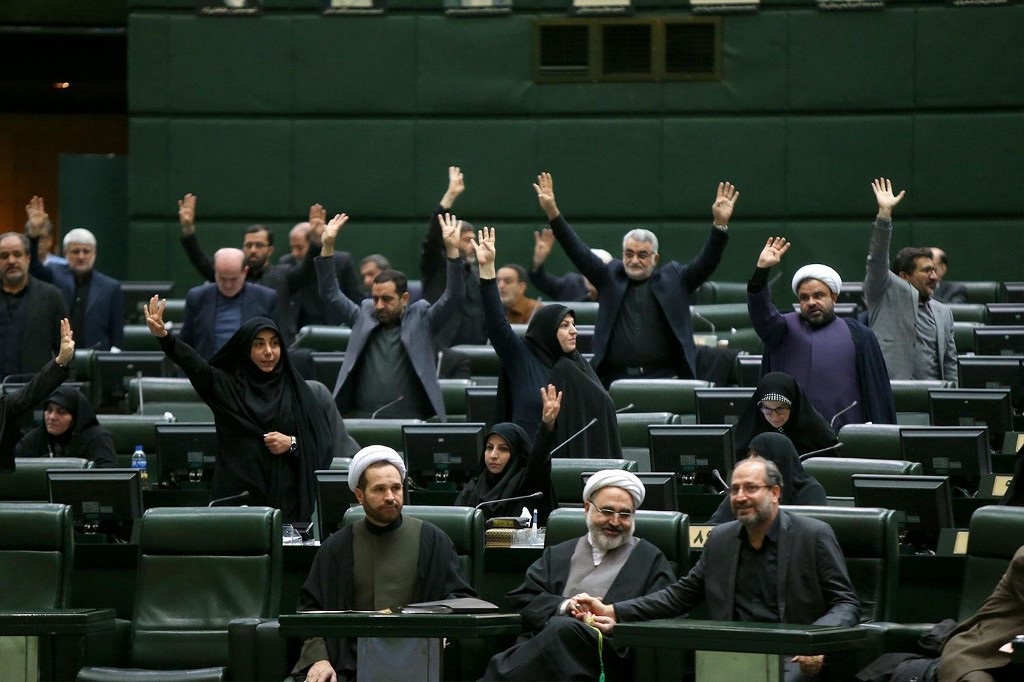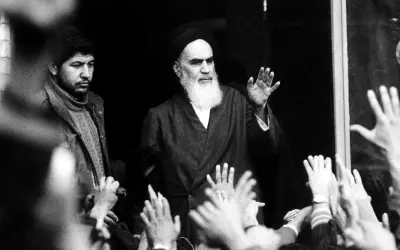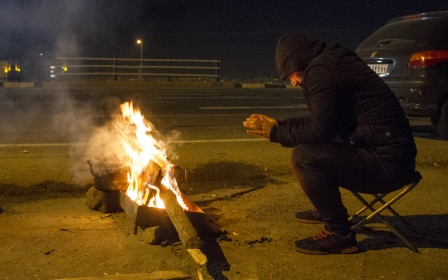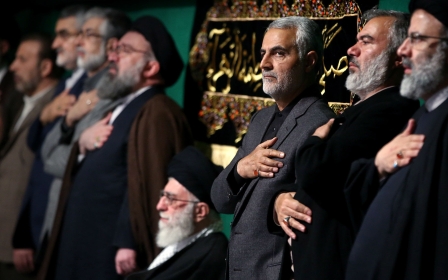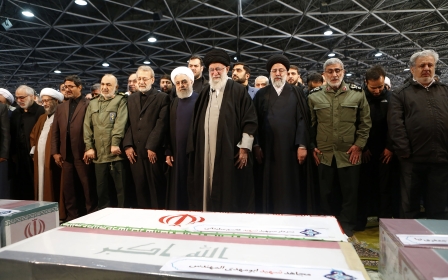'No alternative': Tehran voters opt for election boycott as authorities crack down

As Iran gears up for the parliamentary elections later this month, security forces are cracking down on critics, raiding journalists’ homes and sentencing adversaries to long jail sentences.
The moves come after the Guardian Council, the hardline 12-member body overseen by Supreme Leader Ayatollah Ali Khamenei, barred reformists from running in the polls set for 21 February.
'I’m confident that Khamenei won’t let my preferred candidates and MPs realise their promises'
Ahmad-Reza, University of Tehran doctoral student
Meanwhile, the vast majority of hardline and conservative candidates have been approved to run.
Iran has always had a rigorous process for elections, but the removal of reformists - whose party currently hold the most seats in Iran's 290-seat parliament - means that Khamenei is close to consolidating power in parliament and the government.
In the face of the crackdown, reformists and their supporters told Middle East Eye they have given up hope of being an effective force in parliament anyway and are now seeking to boycott the race unofficially.
“Four years ago, we voted hopefully for [Iranian President Hassan] Rouhani and reformists in the presidential and parliamentary elections,” Ahmad-Reza, a PhD student at the University of Tehran who makes a living writing papers for other students, which is an illegal but widespread activity. He declined to give his last name to protect his identity.
“But neither Rouhani, nor reformist MPs could do anything and both faced big obstacles: Khamenei and his hunger for absolute power. In reality, whatever good they did, Khamenei undid it.”
As a result, Ahmad-Reza said he won’t vote in the elections. “I’m confident that Khamenei won’t let my preferred candidates and MPs realise their promises. We don’t want any more to give legitimacy to Khamenei.”
‘Zip up their mouths’
On 2 February, a court in Mashad sentenced eight political activists to long jail terms over an open letter they wrote last year calling for Khamenei to resign and change to Iran’s constitution.
Meanwhile, the Iranian Revolutionary Guard Corps (IRGC) forces raided the homes of more than a dozen journalists and confiscated their phones and laptops. Others were summoned by authorities and threatened over their efforts to report on the election, reformist media outlets reported.
'Why is the election a healthy process when it ends in your victory, but it is called defective when it is not in your favour?'
- Ayatollah Ali Khamenei
In unprecedentedly strong terms, Rouhani has slammed the purge of the reformists, describing the “race” as “engineered” in a Tweet last month. In turn, Khamenei and his supporters have questioned their logic.
“Why is the election a healthy process when it ends in your victory, but it is called defective when it is not in your favour?” said Khamenei on 5 February.
One day later, the head of Iran’s judiciary Ebrahim Raisi threatened critics, saying that those who “question” the election, belong to the “enemy’s camp”.
A political analyst based in Iran, who spoke to MEE on condition of anonymity for his safety, said the comments “serve as a warning to journalists and activists to zip up their mouth”.
“Every time when the Islamic Republic faces governance failure and protests emerge across the country, the radicals and ruling class start silencing the critics by jailing and intimidating in order to securitise the atmosphere of politics,” he said.
“However, I’m happy that now with the progress of technology and social networks, Khamenei, who is not even close to being a Muslim, is unmasked and he can no longer hide behind a curtain, claiming that he is not aware of the problems and oppressions.
"Currently, people can easily understand who, hand in hand with Trump, is crushing their life and dreams.”
Popularity drop
But Rouhani has also taken a hit over Iran’s dire economic situation after US President Donald Trump administration’s withdraw from the 2015 nuclear deal and launched a "maximum pressure" strategy against the country.
As of November, his popularity had declined to below 10 percent, according to a government-run opinion poll.
A reformist activist, who spoke on condition of anonymity for his safety, told MEE that the nuclear deal that was the major achievement of Rouhani and the reformists are now “almost gone”, an outcome he blamed on “indirect cooperation” between Khamenei and Trump.
“On the one hand, Khamenei and the IRGC resorted to actions on purpose to undermine Rouhani’s foreign policy,” he said.
“On the other hand, a freak won the election in the US and tore up the 2015 nuclear deal and made Khamenei and the IRGC jubilant as they saw their rival beginning to fail badly.”
‘We have no alternative’
Both Rouhani’s failure and Khamenei’s clampdown have pushed many Iranians – at least in Tehran - to boycott the election to demonstrate their anger, according to an Iranian Student Polling Agency survey conducted last month.
Farhad, a taxi driver working mostly in the city centre, told MEE that, four years ago, he was hopeful when he voted for Rouhani and other the reformists that they would revive Iran’s economy by reconciling with the West.
“They were successful to some extent, but Khamenei prevented the full recovery of the economy,” he said.
“Bad luck is hunting Iranians. We have no alternative. The Islamic Republic’s opposition like [former crown prince] Reza Pahlavi are evidently more inept and worse that the existing ruling class.”
So now, Farhad says he’s done with voting. “I won’t commit that mistake again unless a miracle happens,” he said.
Ahmad-Reza, the University of Tehran graduate who said he will skip the vote, says he’s nonetheless concerned about what the absence of voters like him will mean.
“We are increasingly anxious about the plots of the US, Saudi Arabia and Israel as it is crystal clear for us that they want to disintegrate our beloved country,” he said.
“A low turnout may tempt such countries to become bold and audacious to resort to dangerous actions against us.”
This article is available in French on Middle East Eye French edition.
Middle East Eye propose une couverture et une analyse indépendantes et incomparables du Moyen-Orient, de l’Afrique du Nord et d’autres régions du monde. Pour en savoir plus sur la reprise de ce contenu et les frais qui s’appliquent, veuillez remplir ce formulaire [en anglais]. Pour en savoir plus sur MEE, cliquez ici [en anglais].


